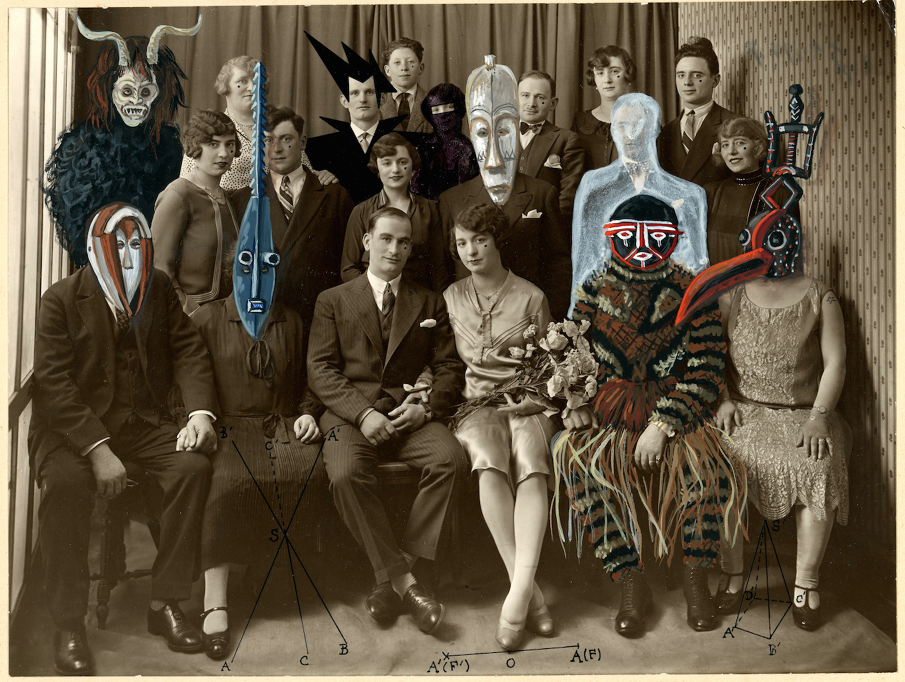by: Chris Campanioni ((“Out of Order” is an excerpt from Chris Campanioni forthcoming memoir, Death of Art.))
Chris Campanioni considers the rapidly shifting cultural norms relating to our physical selves (the body) and our dislocated selves (technology), but most importantly, the interaction between being embodied and disembodied, simultaneously…
In the winter of 2015 I went back to Ann Arbor to speak with students who were reading my writing for their 300-level Creative Writing course. One of them asked me about linearity in narrative, why nothing I’ve ever written moves chronologically.
“Because of texts,” I told her. And I looked at her jotting that down in a notebook. A handful of other students around her were doing the same thing.
My name and the name of one of the books I had written were written across the white board in black marker, smudged a bit so the two Cs almost reached out to each other from name to surname, like holding hands, the way I sign my signature when people ask me to, or a receipt demands it.
The weather matched the writing on the wall. Air appeared hazy. The sun was hiding, too. I couldn’t tell what time it was but it looked to be late in the afternoon, except I knew it was morning.
Lately I had been thinking about writing a memoir because everything else I’ve ever written is a memoir while pretending to be something else and I figured it was time I did something else, which was a memoir.
So much of my life is predicated on pretending or performance. Language had become another performance for me. One in which I could show off and show myself. At the same time.
I love how u apply your line breaks
Even to ur e-mails
By interrupting ur subject
Lines at strategic places
Could that be the title
Giancarlo went on. He’d been texting me all this time, he in his apartment on the edge of DUMBO surrounded by films and their posters as I stood and gazed out the window or into the faces of the people I had just met, the people I came to see and who came to see me.
One of many essays I will write about u
Judith Butler meets Wittgenstein
U in a nutshell
I Googled both writers but I couldn’t see any resemblance.
And besides, I typed back, I haven’t read Wittgenstein yet either.
“What do you mean by texts?”
I looked up from my phone and turned my phone to the student so she could see what I meant.
Everything in this culture comes out of order ((Just as the pocket watch redefined our relation to time, cell phones have changed our relation to space, shrinking our sense of distance but also doubling it, making an intrinsic human quality explicit: we are always in more than one place.)). We either get messages too soon or not soon enough. They come one-by-one or like chasing someone on the street. Playing catch or catching up.
“Text message is the new narrative,” I said aloud. And even I thought about writing that down.
In the summer of 2015 I went ahead and imagined my trip to Ann Arbor, because I didn’t go anywhere all summer and I’d just gotten the news from the student life director and the date was set and the airfare was paid for and so was the lodging and I could picture everything because I’d been the spring before and everything would be the same and also different.
I’d arrive in the evening and there’d be a big basket waiting for me at the hotel with a note I would read and chocolate I wouldn’t eat and in the morning that looked like evening or at least late afternoon a student would ask me about linearity in narrative and why nothing I’ve ever written moves chronologically and I’d say something glib or that sounded glib or that I tried to sound glib about texts while my friend from Rome who lives in DUMBO would text me the same things he is texting me right now, from Rome except he’ll be back in DUMBO by then and everything would be happening at all times and the same time and the day would be hazy and the sun would be hiding and even my black name would look smudged out across the whiteboard and no one would know if I was being serious or if I was putting them on and even I would think about what I was saying and how it sounded like something I thought was good enough to write down.
Chris Campanioni has worked as a journalist, model, and actor, and he teaches literature and creative writing at Baruch College and Pace University, and interdisciplinary studies at John Jay. His “Billboards” poem that responded to Latino stereotypes and mutable—and often muted—identity in the fashion world was awarded the 2013 Academy of American Poets Prize and his novel Going Down was selected as Best First Book at the 2014 International Latino Book Awards. He co-edits PANK and lives in Brooklyn. Embrace the Death of Art.






